Religious devotion is a tricky quality to depict in any medium: so many of us have seen piety as hypocrisy both in film and in life that we’re prepared to laugh at or to dismiss deeply held religious beliefs onscreen. In work made for mostly secular audiences, filmmakers who want to show deeply religious characters have to answer the question: if piety isn’t a joke, what exactly is it?
Sincere, spiritual belief in the Korean Zen film Spring, Summer, Fall, Winter… and Spring (which, for long stretches is, in all but name, a silent film) is shown in very specific ways, most compellingly when the young monk pours the ashes of his teacher into the water and we see the fish start to consume them. A very different viewpoint comes from Luis Buñuel, the anticlerical director of Simon of the Desert when he shows the audience that the “goodness” and faith of religious ascetic, Simon, interferes with his ability to understand and connect with other people–which is why his efforts to improve their lives never quite hit the mark.
The title character of Pawel Pawlikowski’s Ida (Agata Trzebuchowska) starts out as Anna, a young novitiate in Poland in 1962, ready to take her vows when her mother superior tells her she must first visit her only living relative, an aunt whom she has never met, nor even heard about before. When the aunt, Wanda (Agata Kulesza), first sees Anna at her door she doesn’t even bother greeting her, just stares at her face for an uncomfortably long time. When Anna introduces herself, Wanda tells her that she knows who she is.
Anna comes in and they talk, Wanda says “They never told you? You’re a Jew.” Anna’s parents (her mother was Wanda’s sister) were slaughtered during World War II and Anna/Ida was brought up as an orphan in the convent. Wanda shows Anna/Ida photos of her family (including Anna’s mother, who looks just like her) and asks because Anna’s hair is covered with a wimple “You’re a redhead too, aren’t you?”
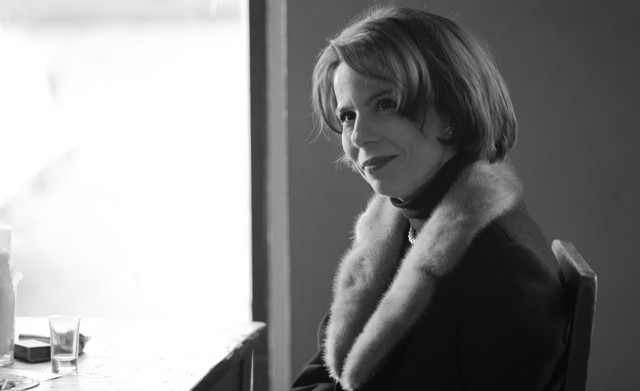
Anna/Ida wishes to find out how her parents were killed and where their remains are buried, so she sets out for the small town in the countryside where they lived and died. Wanda accompanies her, chauffeuring her in the shiny car that, like her spacious apartment, fur-collared coat and tailored dresses, are a perk of being a powerful Communist Party member (she works as a judge) and provide a stark contrast to how most of the others we see in the film live.
Wanda and Ida act as good cop/bad cop with Wanda’s past as a prosecutor put to use when she interrogates those who might know where and how her sister and brother-in-law were killed, while Anna’s wimple and cross serve as entrée through doors that even Wanda’s position as a powerful Party member can’t open. One of the many things the film gets right about the period is the deference laypeople show Anna. In the 60s and early 70s, years before the sexual abuse scandals came to light, a lot of Catholics, especially older people, still looked at nuns and priests with reverence. Even as a farmer’s wife rebuffs Wanda’s efforts to find out about the death of Ida’s parents, she asks Ida to bless her baby.
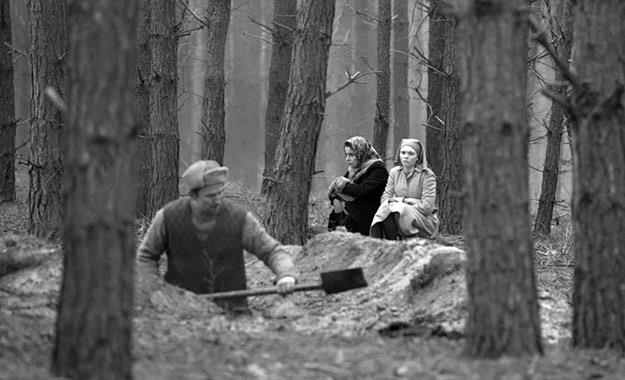
The excellent Enemies, A Love Story, from the late Paul Mazursky, is one of the few other films that shows surviving European Jews living with the aftereffects of World War II’s mass genocide without, as in The Pawnbroker and Sophie’s Choice, giving us flashback scenes to the camps themselves. But Ida is different in that it takes place in the country where the genocide happened–and where we see precious little soul-searching about it. We find out Ida’s mother and father never made it to the camps, or even into the presence of a Nazi soldier or bureaucrat, but were killed, like livestock, by a neighbor. He knew no one would punish him for their deaths.
He murdered the family to gain possession of the small, run-down farmhouse we see at the start of Ida and Wanda’s search, its dinginess a testament to just how little it takes for someone to lose all morality. When Ida asks the man why he didn’t also kill her, he tells her, “You were tiny. No one would know you were a Jew,” and the arbitrariness that spared her is as bracing to us as a slap.
The film presents but never quite answers a question that still persists in places like Rwanda today: how does one continue to live with the people who wanted to kill you and all the people like you, or at least didn’t try to stop those who wanted to see you and your kind dead? Anna/Ida, without revealing her relation to them asks the town priest if he knew her parents. His answer shows a continuing indifference to them and to their fate: Jews mostly kept to themselves, he says. That indifference is something Anna/Ida might have shared before she knew who her parents were and how they died.
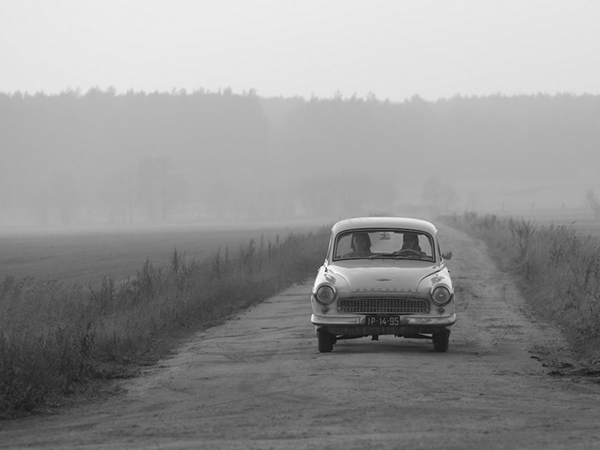
The black and white cinematography of the film, by Ryszard Lenczewski and Lukasz Zal, is striking: at one point we see the spindly, dark trunks of trees pushing up between the gravestones in an abandoned cemetery like an Edward Gorey illustration come to life. And Ida passes the Bechdel test with flying colors (as they look for clues about her murder, the two women talk about Ida’s mother, but hardly at all about her father, whom Wanda holds responsible for her sister’s death). But a pass or fail of the Bechdel test alone doesn’t determine the worth of any film: in spite of the talent of both actresses, and the deep issues the film brings up, these two characters, in the end, inhabit unconvincing gendered stereotypes.
In the same way that some popular memes have placed men in poses adopted by women in magazine layouts to show the inherent sexism of these photo shoots, we can see how these characters are lacking by imagining the roles rewritten as men. “Adam” is scheduled to soon take his vows as a monk when he is told by one of the Brothers at the monastery that he should first visit his Uncle Waclaw, his only living relative. Waclaw tells Adam he’s Jewish: his real name is “Ira.” The uncle is a former prosecutor who degrades himself by sleeping with a lot of women and frequently getting drunk. But unless we’re seeing a film from director Steve McQueen, no male character succeeds in degrading himself by having sex with a lot of women. And hard drinking often telegraphs the man is the hero.
“Ira” never loses his temper or even cries when he encounters the evidence of his parents’ murder and the confession from the man who killed them. The closest he comes to a stand (outside of his determination to find out what happened to his parents) is a placid-faced, silent and motionless refusal to shake the hand of the farmer when he agrees to show Ira the grave in exchange for Ira dropping any claim to the farm.
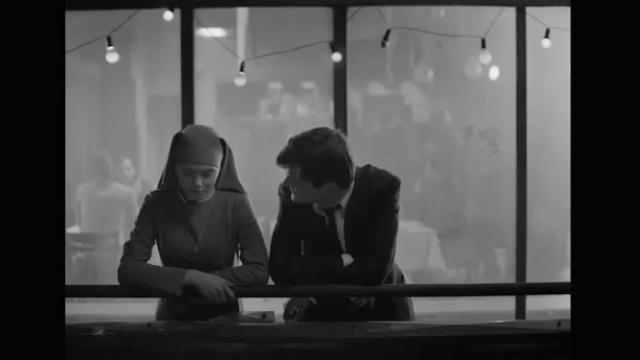
The hitchhiker the uncle and Ira pick up would be the woman singer in the jazz band instead of, in Ida, the male saxophonist (the singer would feel safe alone with two men in the car because one was wearing monk’s robes) and later when the monk comes to listen to the musicians jam after their gig, the singer could tell him, looking over his smooth, wide-eyed face (as the saxophonist tells Ida) “You have no idea the effect you have on (wo)men, do you?”
As Wanda’s character could be summed up as a screwed-up “slut” (a word she calls herself and for which there is no male equivalent), Ida/Anna seems to serve as a bastion of purity. The problem with purity as ascribed to everyone from the Virgin Mary through Snow White to every dull, “good” woman rescued by “the hero” is: “pure” is a better descriptor of soap than it is of a human being. In films as in life, purity is rarely an attribute assigned to men, only to women and girls just like “strong” in the emotional sense of the word, is.
I wouldn’t categorize the two main women characters in Pawlikowski’s earlier film, the compelling My Summer of Love (its star Emily Blunt, in the role that brought her to the attention of Hollywood) as ultra-realistic either, but their actions and words seemed to have concrete (if sometimes complex) motivations: those two weren’t the opaque characters Wanda, to some extent, and Anna/Ida, especially, turn out to be. When Anna/Ida makes a life-changing decision toward the end, her expression is as serenely impassive as it was at the beginning, as if nothing had happened to her during the course of the film. Ida seems poised to forget everything she’s learned in the 80 minutes we’ve been in her company–including her own name.
[youtube_sc url=”http://www.youtube.com/watch?v=oXhCaVqB0x0&feature=kp”]
___________________________________________________
Ren Jender is a queer writer-performer/producer putting a film together. Her writing besides appearing every week on Bitch Flicks has appeared in The Toast, xoJane and the Feminist Wire. You can follow her on Twitter @renjender.
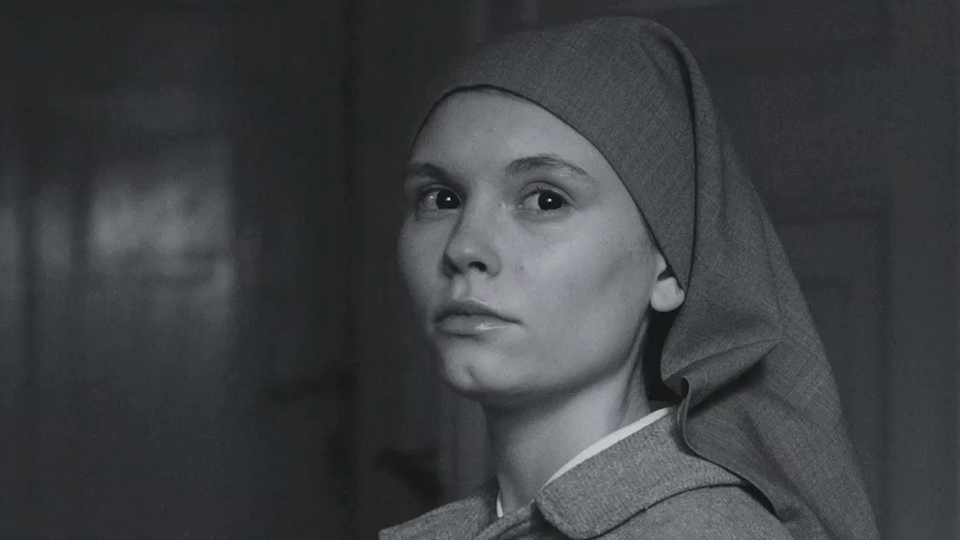
2 thoughts on “Female Purity Is Some Bullshit: My Problem With ‘Ida’”
Comments are closed.